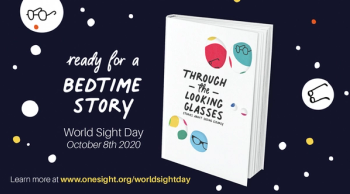
Selections from Through the Looking Glasses: Stories About Seeing Clearly will be read in a virtual setting to increase awareness of the importance of seeing clearly.

Selections from Through the Looking Glasses: Stories About Seeing Clearly will be read in a virtual setting to increase awareness of the importance of seeing clearly.

John J. Grande, CFP, and John S. Grande, CFP, of Grande Financial Services, continue their discussion on how having a solid financial plan in place can ease anxiety amid the pandemic, their advice to ophthalmologists contemplating retirement, as well as the uncertainty surrounding the economy ahead of the 2020 election, ongoing virus, and the unknown of what's in store for 2021.
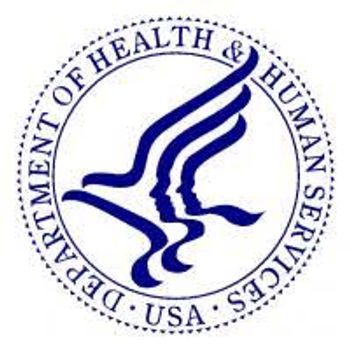
The U.S. Department of Health and Human Services has announced $20 billion in new funding for providers on the frontlines of the coronavirus pandemic.
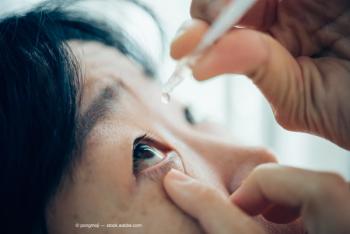
Initiating the treatment preoperatively was associated with better outcomes than if the artificial tears were used only after the procedure.

Findings from large retrospective study support intraoperative cefuroxime irrigation

A French kindergarten teacher has lost his job after the parents of a child complained about his appearance, which includes multiple face tattoos, including the sclera of his eyes, which have been turned to black by the ink. Scleral tattoos pose a serious threat to eye health, and could be a challenge for ophthalmologists treating these patients.
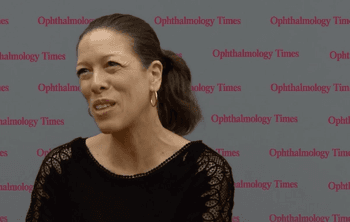
In this fourth installment on "2020 vision," pharmaceutical representatives share their outlook on what lies ahead for glaucoma innovations within the ophthalmic space.

Glaucoma Research Foundation (GRF) Ambassadors webinar provides platform for idea-sharing by ophthalmologists

Divya Srikumaran, MD, assistant professor of Ophthalmology at the Wilmer Eye Institute (Johns Hopkins University), discusses the results of a study published in the American Journalism of Ophthalmology regarding the growth and shift of the physician assistant profession into specialty care as well as the more valuable role PAs are taking in providing healthcare.

Pandemic highlights need for longer-lasting agents to reduce treatment burden in evolving field.
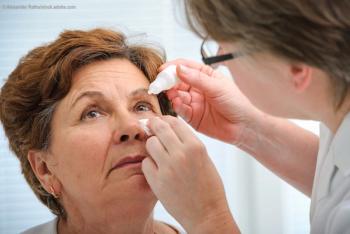
A vehicle-controlled phase 2 study investigating once- and twice-daily administration of a novel, preservative-free topical formulation of dexamethasone as treatment for pain and inflammation after cataract surgery met its primary endpoints.

Tim McCall, PhD, associate director, Surveys & Analysis, American Academy of PAs, discusses a study published in the American Journal of Ophthalmology exploring the expanding role of assistant physicians into specialty care and ophthalmology practice.

Susan Coultas, PhD, and Preeya Gupta, MD, share their hopes for continued innovation in the ophthalmic space — including dry eye and retina — as well as the importance of the clinical research process.

Pandemic is disrupting clinical facilities, putting individuals’ ocular health at risk
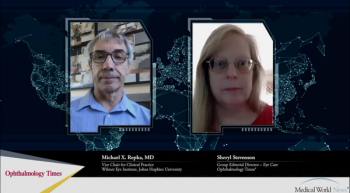
Michael X. Repka, MD, vice chair of clinical practice at Wilmer Eye Institute (Johns Hopkins University) speaks on the institution's latest protocol changes allowing for the resumption of elective surgery as well as the adaptations clinicians have had to make in order to ensure the continuation of clinical practice at Wilmer Eye Institute.

Ophthalmologists share their outlook for the current state and future of the ophthalmic profession, how coronavirus pandemic has altered the profession as well as how —now, more than ever — patient care remains a number one priority for ophthalmologists.
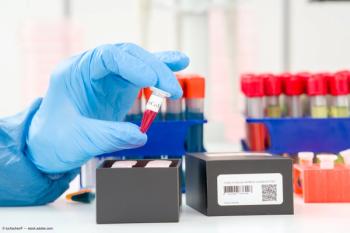
The use of a human monoclonal antibody (Narsoplimab, Omeros) to treat acute respiratory distress syndrome (ARDS) associated with COVID-19 resulted in recovery and survival of the affected patients.

Retina specialists Caesar Luo, MD, of Bay Area Retina Associates (Walnut Creek, CA) and S.K. Steven Houston III, MD, of Florida Retina Institute, share their outlooks on retina innovation in the "year of the eye" amid a global pandemic.
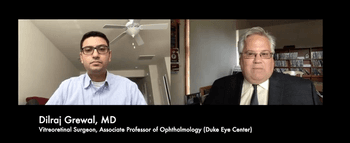
Dilraj Grewal, MD, speaks on his presentation "Evaluating the True 3-Year Recurrence Rate in Non-infectious Posterior Segment Uveitis Following an Injectable Fluocinolone Acetonide Insert," during ASRS 2020.

This action will result in 2 separate companies,
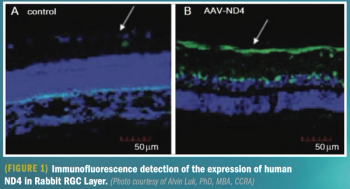
Intravitreal injection offers safety, efficacy, and improved vision in patients
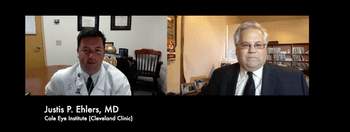
Justis P. Ehlers, MD, speaks on the key findings and take-aways from his presentation "Impact of baseline OCT characteristics on response to risuteganib for the treatment of intermediate age-related macular degeneration (AMD)."
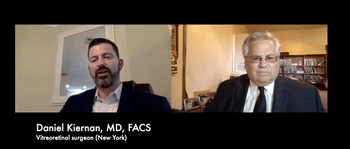
Daniel F. Kiernan, MD, FACS, speaks on the key findings and take-aways of his presentation "Dexamethasone intracameral drug-delivery suspension for inflammation associated with vitreoretinal surgery."

S.K. Steven Houston III, MD, discusses retina innovations in use in his practice, including the NGENUITY 1.4 upgrade from Alcon, and adapting to ever-changing operating room spacing and set-up in the COVID-19 environment

Caesar Luo, MD, shares the take-away points from his ASRS presentation, and how the topics from his talk may be applied day to day in retinal practice.

Theresa Heah, MD, provides an update on AsclepiX’s AXT107, which is derived from a cryptic peptide within collagen IV that works by activating naturally existing, homeostatic mechanisms of angiogenesis.
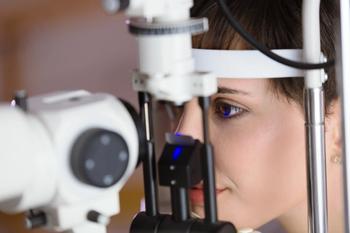
How gonioscopy can offer ophthalmologists an option in treating patients with glaucoma

ASRS 2020: Josh Anderson speaks on the highlights from Alcon, including new data on the performance benefits of the Hypervit dual blade 20,000 cpm probe and the launch of the NGENUITY 1.4 upgrade.

Derek Kunimoto, MD, JD, focuses on Aviceda's technology, which will aim to target various immune system responses that contribute to pathology associated with dry AMD.